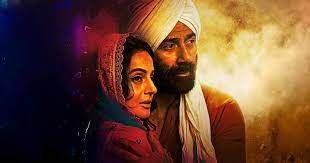Review of Jee Karda: Tamannaah Bhatia and crew provide a watch that is both relevant and tolerable
Arunima Sharma’s brand-new slice-of-life programme Jee Karda gets off to a strong start. It features a prophesy made by an elderly man concerning a group of schoolchildren, in which he identified each student’s own Kryptonite and advised them to keep it at a safe distance from it.
The story then jumps to 15 years later, when each of the children is dealing with the effects of the very same feature, element, or person they were warned to avoid, and the youngsters reject the fairly fantastical prophesy.
The show’s tone was established in the first five minutes. We are eager to learn how each of them ended up there since we already know the beginning and the conclusion.
The fact that Arunima, Abbas, and Hussain Dalal aren’t completely fixated on the two endings of the story helps. They seem more interested in the seven characters’ progression from point A to point B. Therefore, it is understandable that not every arc ends up being exactly as the prophet predicted. Some have metaphorical meanings, while others have fantastical interpretations.
However, it’s disappointing that despite being a movie about friendship and how it develops from infancy to maturity, there are so few occasions when the whole group turns up and hangs out together. No, we don’t anticipate them to regularly gather at a Bandra/South Bombay Central Perk equivalent. However, additional sequences demonstrating their interpersonal interactions among a bigger group would have sharpened the lines of conflict.
When we compare the abundance of scenes from their childhood in which they are all together, plotting or pulling each other’s strings, with the absence of those same behaviours as adults, it suggests that friendships frequently deteriorate over time.
The way the group is shown helps us to understand how they really feel about a third character who isn’t in the picture. However, it generally involves learning something new. The show’s first five minutes revealed a lot of promise for the narrative framework, but it might have been developed in a manner that kept us wondering even more throughout and raised the stakes at the conclusion.
Having said that, two more aspects step forward to keep us interested when the writing and directing take extended breaks. First, the cast, assembled by the always competent Casting Bay.Tamannaah Bhatia has recently shown that she is capable of much more than merely portraying a gorgeous leading woman in South star films. She keeps the ease she portrayed in Shashanka Ghosh’s romantic comedy Plan A, Plan B, and adds an inner torment that symbolises the problems that people over the age of 30 self-inflict on themselves. Despite the narrative’s insistence on making the tale about her character, she fits into the group of characters with ease.
Aashim Gulati also contributes his edgy demeanour and pure energy from Taj: The Reign of Revenge, and he bathes it in the contemporary, hip-hop artist-inspired hues. It isn’t until the second half of the programme that he begins to display a distinct aspect of his character’s personality; this is hinted at in a scene when his character is listening to “Chhaap Tilak” alone but quickly switches to his own rap song when a buddy walks in.
Suhail Nayyar is cleverly portrayed as the nerdy man-child he was in Sharmaji Namkeen from the previous year. Anya Singh, who had a standout debut in the forgettable Qaidi Band in 2017, now again demonstrates that she has the charisma to carry a big role. Although she is given the short end of the stick in this situation, she is the only one who can pass off remarks like “tujhe feel bad hua?” Hussain Dalal, who co-wrote the programme, cleverly assigns himself a challenging role: that of the “invisible friend,” a character who stands out from the group and ultimately upsets everything. Additionally, I’d pay a lot of money to see Simone Singh run her own show right now. After Four More Shots Please, she is the coolest MILF on TV. Jee Karda immediately, please.
The music composed by Sachin-Jigar is the second component that gives the performance life. They diligently compile a playlist that is pleasant to listen to, infectiously catchy, appropriately eccentric, deceptively insightful, and adds a lot to the story. These songs would have undoubtedly lived a life of their own if they had been put against a tighter, more sophisticated presentation.
On the sets of Homi Adajania’s films, associate director Arunima Sharma worked (he shows up to co-direct a few episodes here). She has the distinctive eccentricity that her mentor is known for, but she nevertheless makes a strong argument for how adulthood affects everyone in their 30s, particularly women. That group will undoubtedly be able to connect, but one wishes there were more to think about than just another reminder of the daily grind we’re currently mired in.







